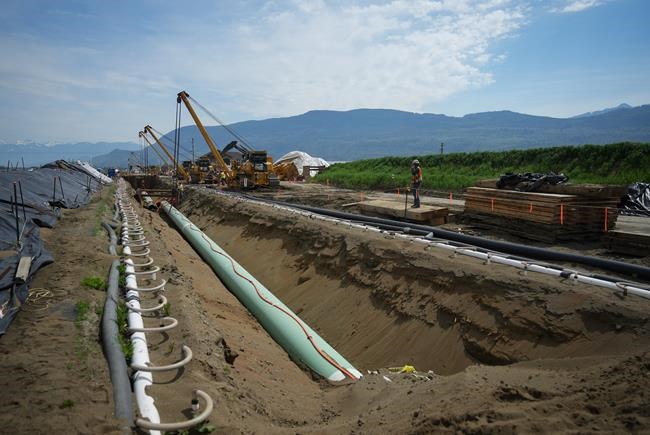Degrees, Diplomas and Certificates: From School to Work

Article content
Morgan Blausen, 25, runs a home cleaning business, works as a child and youth worker, and as a part-time restaurant waiter. Now, she’s carving yet another career path as a real estate agent after passing her pre-licensure exam in June.
advertising 2
Article content
That wasn’t always the plan.
Article content
With a Bachelor of Arts degree, Brausen studied sociology at Edmonton’s MacEwan College, where he specialized in criminology, had an interest in restorative justice, and turned to law (and beyond). After graduating in 2019, just before the COVID-19 her pandemic, she wanted to apply what she had learned to her work experience, but she wanted a job worthy of her bachelor’s degree. I had a hard time finding it.
Brausen does not blame the program or the economy for this difficulty, but recalls being under a lot of social pressure in high school to pursue a college education.
“The idea is that once you have a degree, you can get a higher-paying job, and you can get a more prestigious job,” Brausen said. “Especially in high school, my parents and everyone encourages me to get a degree. The fact is that I could have graduated, taken the real estate exam, and not been $50,000 in debt to be where I am today.” To.”
advertising 3
Article content
Statistics show that a bachelor’s degree has an advantage over college certificates, apprenticeship programs, and high school diplomas when it comes to income, so these calls for a college education are in the right place. It is possible that he had a heart for
In 2015, the median annual income for Canadian women aged 25 to 64 with a bachelor’s degree as their highest educational attainment was $68,342, 40% higher than college graduates and 58% higher than college graduates. A high school diploma, according to Statistics Canada’s analysis of 2016 census data.
Males in the same age group who landed with a bachelor’s degree also had a higher median income of $82,082, but the gap with men with apprenticeship qualifications ($72,955) and college diplomas ($67,965) was smaller, especially in Western Canada. But it was the same. Like Newfoundland and Labrador.
Advertising 4
Article content
Where people work has an impact on their income, agencies said.
Saskatchewan stood out as the only state where the median income for men with an apprenticeship was higher ($86,059) than for a bachelor’s degree ($84,825) or a college diploma ($78,176). Adjusted for inflation, apprenticeship-qualified men’s earnings increased 42% in the province from 2005 to 2015, Statistics Canada said, adding that the oil boom of the past decade has boosted demand for skilled trade workers. It has been pointed out that there is a high possibility that the to their higher income.
A little further west, Alberta stood out as having the highest annual income for men and women of all levels of education due to rising oil prices between 2002 and 2014, the agency added. Greater demand for production in industry and for workers, especially in skilled occupations.
Advertising 5
Article content
Further analysis shows that the areas students pursue after secondary school can also affect income.
Jeffrey Penney, an assistant professor of economics at the University of Alberta, said there was evidence of significant differences in starting salaries across disciplines.
“A recent study found that the income gap between different college majors can be as large as the average difference between those with and without a degree.” he added. to receive higher education. ”
For example, from 2006 to 2013, in Atlantic Canada, the average social science degree holder earned about $30,000 a year after graduation, while health-related program graduates earned about twice as much. I was getting
Advertising 6
Article content
The same is true for skilled workers in Canada, where trade makes a big difference in workers’ earnings, Penney said. In 2017, heavy equipment technicians working in Canada earned about $79,000 after certification, while plumbers earned about $54,000, he added.
“Many starting salaries for merchants are competitive with higher-paid college majors,” said Penny.
For Brausen, a career in trade was never really factored into her career plans, nor was it a lack of opportunity. Originally from Hardisti, Alta, a center of the oil industry about 200km southeast of Edmonton, she has several family members working on pipelines across the country.
Looking for a way to earn some money after graduation, Blausen worked for several months in a related field as a health, safety and environmental manager for a pipeline construction company, earning about $2,800 a week, including living expenses. He said.
advertising 7
Article content
“I’ve seen how good money is,” she said.

In the end, shift work and the possibility of being on site far from home didn’t sit well with her.
Only in 2021 did she broaden her search and find several opportunities as a child and youth worker. The role requires her four-year degree, and because of her volunteer experience working with children, Blausen said it would be a natural fit for her.
However, she chose to remain a temporary worker in the field, juggling service jobs and her own business. She plans to expand to include commercial cleaning services, and while law school is still on her mind, she’s not only thinking about restorative justice, but how she’s combining it with her newfound interest in real estate. .
There’s a lot to juggle, but she’s found her footing in the present while looking to the future.
advertising 8
Article content
In retrospect, Brausen really wishes he had been given a more comprehensive overview of his options and a sense of how his college education would play out in the job market. She said she wished she had taken a year off to consider.
“In college and high school, it’s not often said, ‘Once you get this degree, here’s what you can do with it,'” she said. “But a lot of other work is needed for society to function, and I feel like it is not discussed.”
hissawi@postmedia.com
Degrees, Diplomas and Certificates: From School to Work
Source link Degrees, Diplomas and Certificates: From School to Work





